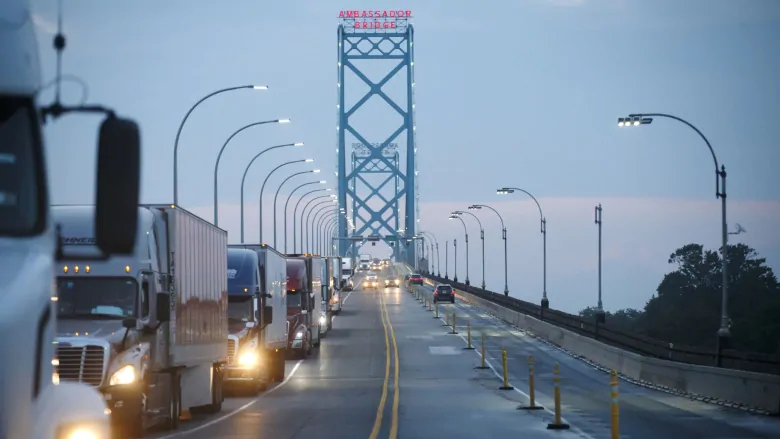The Donald Trump era began in 2015 with a promise to build a wall between the United States and Mexico. Five years later, the Trump era may end with citizens in much of the rest of the world — Canadians, in particular — insisting on a virtual wall between themselves and the United States.

The Donald Trump era began in 2015 with a promise to build a wall between the United States and Mexico. Five years later, the Trump era may end with citizens in much of the rest of the world — Canadians, in particular — insisting on a virtual wall between themselves and the United States.
With the United States adding 40,000 new cases of COVID-19 each day, the European Union is leaving the U.S. off a list of 15 countries whose citizens soon will be allowed to visit its 27 member nations. In Canada, there seems to be no great desire to quickly reverse the unprecedented border restrictions that were imposed in March.
The question for Canadians is how much longer the virtual wall will have to be in place — and how much it might hurt to keep it there.
“My guess is it’s going to have to stay closed for more than 12 months,” Colin Furness, an epidemiologist at the University of Toronto, told CBC News this week. “It’s hard to imagine what’s going to happen in the United States until we have a vaccine or until the population has been sufficiently infected that you have herd immunity.”
Canadians are in no rush to reopen
When Leger Marketing asked Canadians in May when they thought Canada should reopen its border with the United States, 47 per cent of respondents said “not before the end of the year.” With more than 2.6 million cases now in the United States, it’s unlikely Canadians’ enthusiasm for welcoming our American neighbours has increased since then.
An exemption for “essential” travel significantly reduced the disruption to the Canadian economy. “Canadians continue to get the food, medicine, commercial goods, and other essential supplies they need to live and work, and Canadian exporters for the most part have not suffered disruption,” said Goldy Hyder, president and CEO of the Business Council of Canada.
But the decline in traffic across the border has still been precipitous. According to data obtained by Postmedia, between June 15 and June 21 just 170,998 people entered Canada at a land crossing with the United States — and 104,247 of those people were truck drivers. Over the same period in 2019, more than 1.2 million people traveled through a land crossing from the U.S. into Canada.
Based on those numbers, the pandemic is going to lea

